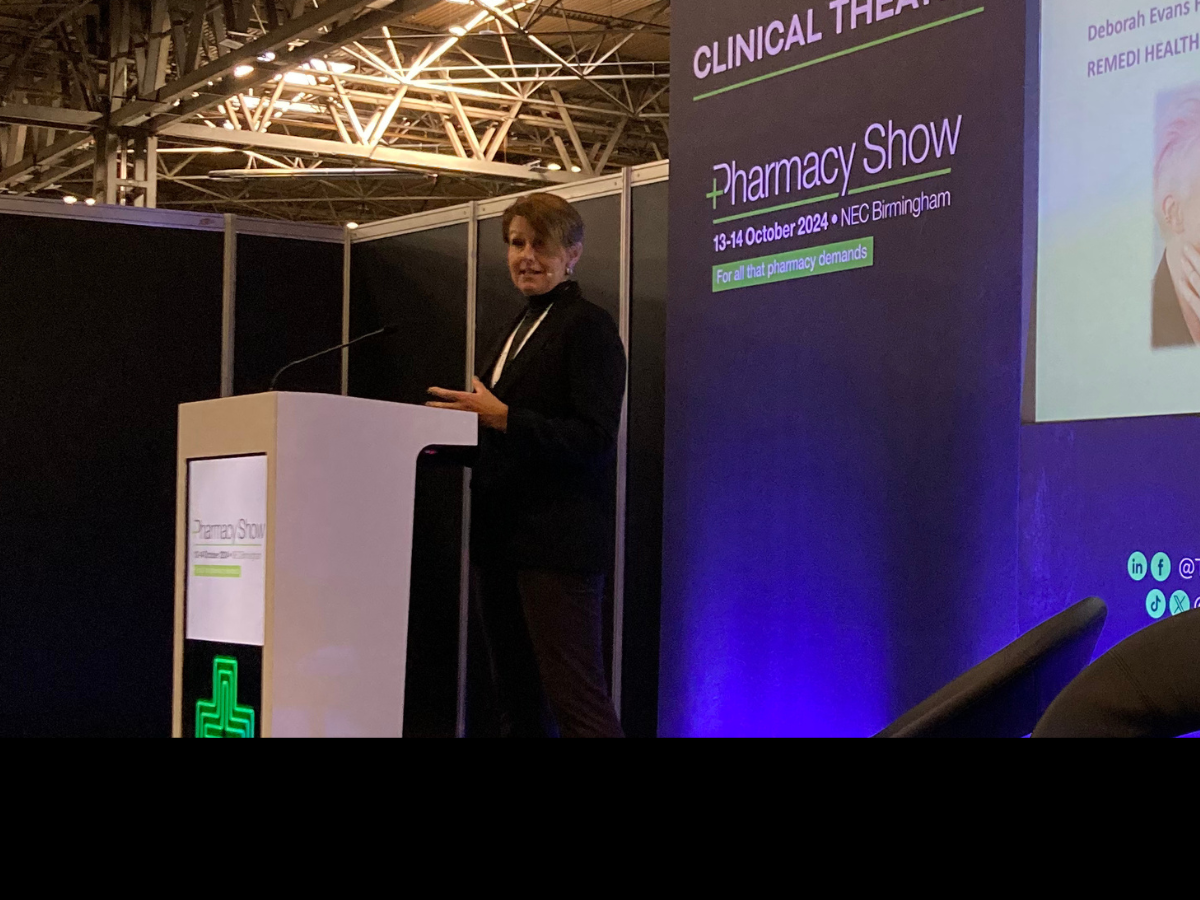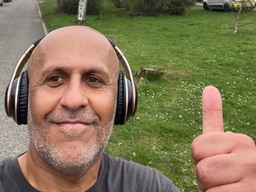Five things to know about running a menopause clinic

October is Menopause Awareness Month and at The Pharmacy Show in Birmingham today (October 13), C+D stopped by the ‘ins and out of a private menopause clinic’ session that discussed the “what, why and how” of setting up a clinic that deals with an essential area of women’s health.
The session was led by Remedi Health co-founder and clinic director Deborah Evans, who previously told C+D that it’s business model "reverses the traditional community pharmacy approach" as with no NHS contract, they focus on clinical services rather than dispensing.
While prescriptions are not “the front end of business”, Evans told C+D in May that “they’re certainly part of the solution” and since establishing in 2021 they have won multiple awards for its business.
This includes Remedi Health winning the Business Innovation of the Year category at the C+D Awards 2022, following up with another win at the 2023 C+D Awards in the Health Initiative of the Year category.
Evans says it’s still a “pharmacist-led practice” though, and here are the five highlights she talked about in setting up a successful private menopause clinic:
Know your competition
Evans spoke about understanding your direct and indirect competition, as for the Winchester-based Remedi Health they have “three or four” specialists in the area to support clients.
But indirect competition can be from “GPs or online services”. Researching all competitor pricing models, the services it offers, and their strengths and weaknesses is essential.
Evans says Remedi’s clients like its service because there is the “ability to see somebody face-to-face” and “many will say ‘I actually haven’t taken anything yet, but I feel so much better because I feel heard’”, so this sets them apart from their competitors in how they reach their clients.
Identifying gaps like this against other local services has helped Remedi and it differentiates further with their “add-on services” such as having a sleep specialist, having blood testing services, and offering clients to pick up their hormone replacement therapy (HRT) prescription at the same time as having their appointment.
Become an IP
When addressing how pharmacists can analyse their competency gaps, Evans stresses that you cannot “do this service without being an independent prescriber” (IP).
She suggests planning on how to become one and shared how her independent prescriber course centred on a menopause specialisation so she could be “seen as a local specialist” for Remedi’s clients.
Evans accessed training through the British Menopause Society (BMS) to extend her “scope of practice” and this has evolved into other areas such as sexual and reproductive health and fitting the contraceptive implant. With the latter, she says she is the “only pharmacist in the country doing that in the community”.
Be bespoke
Evans says that “there shouldn’t be a nervousness” around prescribing HRT as it is one of the straightforward things to prescribe, but following safety guidelines is still important.
Part of these guidelines include adopting “an individualised approach at all stages of diagnosis and management” as well as adapting their treatment as needed.
Talking about prescribing HRT medication to women, Evans says: “we know that we all absorb differently and in fact, I can absorb differently in the morning or at night”. This approach is also highlighted by the BMS in their guidance.
The authority adds that lifestyle advice, diet modification and highlighting the advantages and disadvantages of HRT and other therapies offers the best “holistic” advice.
Promotion
Evans says the market opportunity for menopause clinics is currently “unmet” as “51% of the population will menopause” yet only “around 19-20%” will get HRT as menopause awareness is “patchy”, including among healthcare professionals.
But she says promoting your clinic is “critical” still so people are “aware what you do” and Remedi has held local drop-in events with expert speakers to share information on their services.
Having impactful social media campaigns and including testimonials on your website were also key areas Evans believes can help women have confidence in your services.
Beware unregulated scams
Not all the advice on how to run a successful menopause clinic centred on business and practice, as Evans shared her clinical advice surrounding compounded bioidentical HRT (cBHRT) after one of the session’s attendees asked for her opinion.
She slammed cBHRT as a “marketing scam” and says “there’s no evidence that it’s safe and appropriate to use”.
“It makes no sense because they’re not regulated,” she added.
The BMS says that cBHRT “do not follow the same Medicines and Healthcare products Regulatry Agency (MHRA) regulatory pathway” compared to regulated bioidentical HRT (rBHRT) which is “developed in a conventional way by the pharmaceutical industry” and auhtorised by the MHRA.







Please sign in
If you are a registered user on C+D Community, please sign in